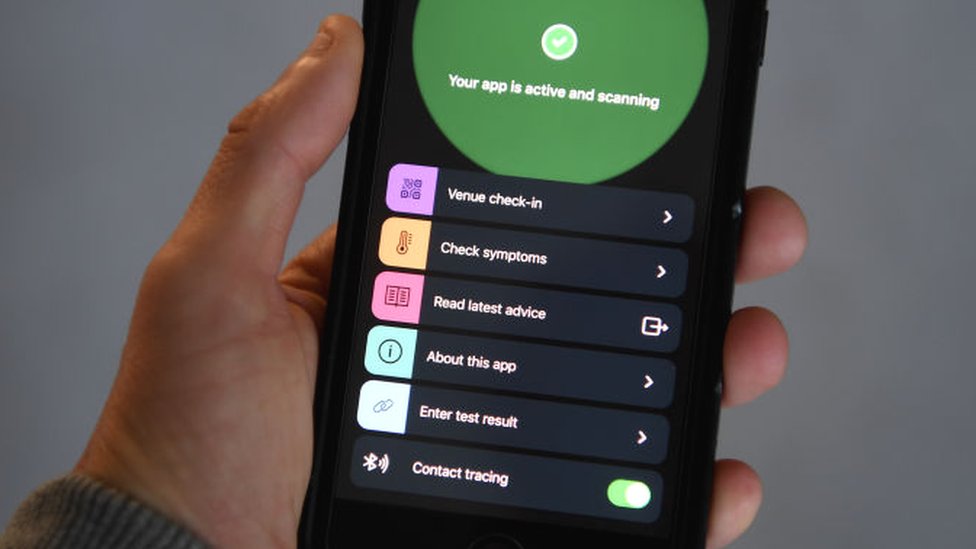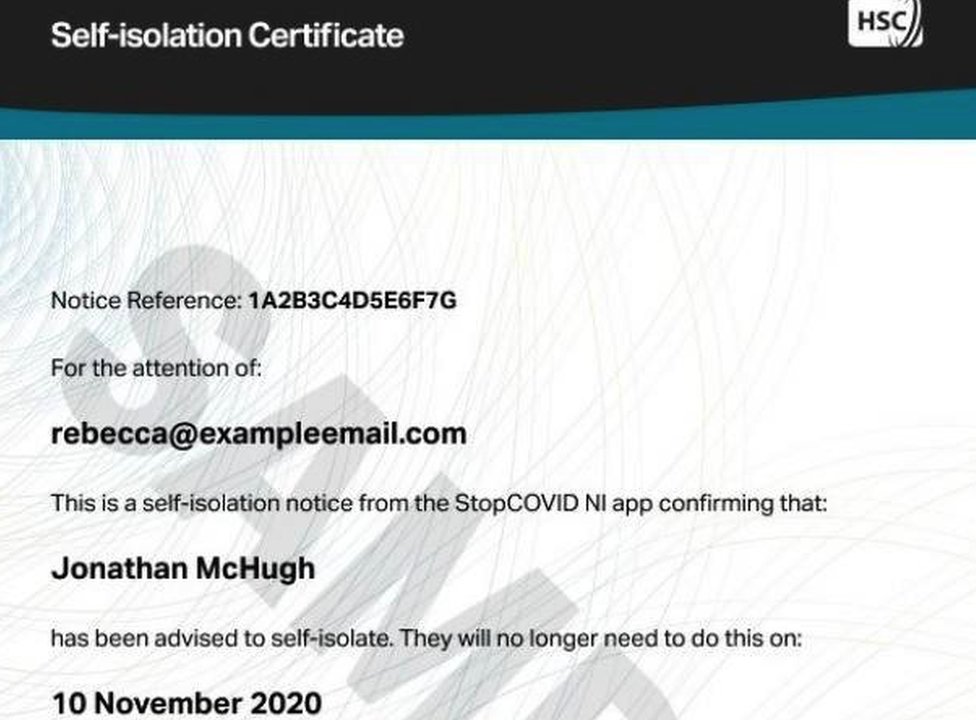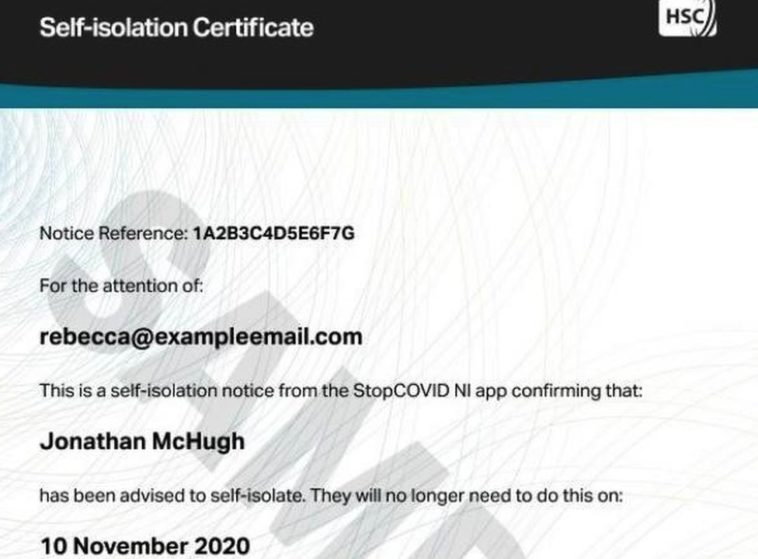Covid-19 app adds self-isolation payments

Getty Images
An update to England and Wales’s NHS Covid-19 contact-tracing app is adding a way to apply for a £500 grant if it gives a self-isolation order.
Until now, those on low incomes were only offered the payment if they had been told to stay at home by human Test and Trace operators.
The move comes at a time when the
number of people testing positive for the coronavirus is on the rise again.
Experts have suggested following the app’s guidance could help reverse that.
“People are not isolating because they can’t afford to or because they don’t realise that they have to – the whole system is not working,” Paul Hunter, professor of health protection at the University of East Anglia, told BBC Radio 4’s Today programme.
“I think there is ample evidence that many people who should be isolating don’t feel they can for whatever reason, and I think that has to be fixed if this is going to be effectively controlled until we’ve had adequate rollout of the vaccine.”
New figures reveal that the NHS Covid-19 app has been downloaded 20,361,253 times as of 2 December, representing about 40% of eligible adults.
That only represents a 0.7% gain since the previous week, suggesting that installations have plateaued.
But by offering financial support, more people might be willing to use it.
And that in turn would help the system become more effective at identifying those at high risk of being infected by someone they were recently in close proximity to.
However, officials say the key aim is to encourage and make it easier for more people to self-isolate.
Preserving anonymity
England and Wales have both allowed people on low incomes, who cannot work from home, to apply for financial help if they have received a phone call, email, letter or text message telling them to self-isolate.
Previously, that did not cover people who had received the app notification to isolate.
This was in part because the app is designed to keep the identity of anyone receiving an alert private.
So, the challenge was to find a way to add the facility while still being able to prevent fraudulent claims.
The solution involves a new financial support button that only appears on the app’s home screen if the user has been told to self-isolate.
If tapped, the user is taken out of the app to a webpage that asks them to select if they live in England or Wales.
After responding, they need to fill in an eligibility criteria check, and if accepted are then asked to supply their contact details.
The team at England’s NHS Test and Trace or Wales’s NHS Test, Trace, Protect then gets in touch, and creates an account number that the user provides to their local authority to get the payment.
In doing so, they must reveal their identity and accept a legal obligation to stay at home for the duration of the order.
If they then break the self-isolation rules they can be fined £1,000 or more.
The system has been set up in such a way that the process only works once, and the external webpage checks it has been accessed in an authorised way via use of a token.
All data stored within the app, including locations checked in via QR barcode scans, remains anonymous to the authorities.
- NHS Covid-19 rides high in Apple’s iPhone 2020 apps chart
- Call to expand £500 grant for Covid self-isolators
- Is the UK’s NHS Covid-19 app too private?
Northern Ireland’s StopCovid NI app recently deployed a similar solution, generating a Self-Isolation Certificate that can be used to apply for a grant from its Department for Communities.

HSC
But at this point, it does not appear that the NHS Scotland Protect Scotland app has a similar facility to let users apply for help from the Scottish Welfare Fund.
The BBC has asked the Scottish government for comment.
Published at Thu, 10 Dec 2020 14:17:29 +0000





Comments
Loading…